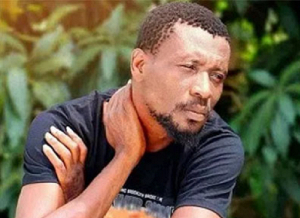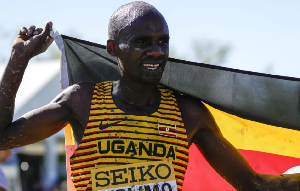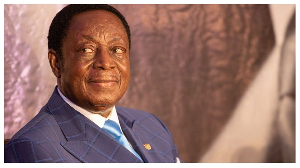Accra, July 28, GNA - The National Democratic Congress (NDC) on Wednesday said it was wrong for the Finance and Economic Planning Minister, Mr Yaw Osafo-Maafo to suggest that reaching HIPC completion point meant that the economic circumstances of the country were changing for the better.
A three-page statement signed by Mr John Dramani Mahama, Communications Director of the NDC, said: "We wish to reiterate that reaching HIPC completion point is not the panacea to Ghana's economic problems as the Honourable Minister sought to suggest at his euphoric HIPC press conference two weeks ago."
The statement, therefore, urged the Government not to be carried away by the fact of reaching HIPC completion, saying that every ordinary Ghanaian was aware that HIPC (Highly Indebted Poor Countries [Initiative)) had not solved the economic problems.
The statement said the Minister announced the International Finance Corporation (IFC) and the CNT Construction Investment Limited (CNCTI) loan affairs with similar euphoria, yet the IFC loan was "a scam", while several questions remained unanswered about the CNTCI loan till date.
It said there was an update of HIPC countries at the end of June 2004 on the World Bank website, which showed that countries like Burkina Faso, Uganda and Benin, which attained HIPC completion point several years ahead of Ghana, were conspicuously on the list of HIPC countries. "It is important to note that following the immediate debt write-off of 1.5 billion US dollars, Ghana still has to maintain an austere fiscal program to enjoy the debt write-off spread over 20 years, a fact which the New Patriotic Party (NPP) prefers not to highlight," the statement said.
The statement said as part of the conditionalities for HIPC relief, the NPP Government was currently running a huge deficit of about 100 billion cedis per month on petroleum bill, a situation not very different from 2000, when the NPP accused the then NDC Government of playing politics with petroleum prices.
The statement said the Government had entered into an agreement with the World Bank and IMF on the pricing of petroleum products, which would ensure that in February next year, if the NPP won the forthcoming elections, petroleum prices would shoot very high and create more hardship for Ghanaians.
It noted that the NDC had on several occasions demanded accountability for the disbursement of the HIPC relief fund, saying without transparency and accountability, there was the possibility that a large chunk of the HIPC relief fund was going down the drain. "Construction of toilet facilities, painting of schools built by the NDC and other previous governments and labelling them as HIPC benefits may serve the NPP Government's propaganda but the question is, why are statutory payments to the District Assemblies' Common Fund (DACF) and the Ghana Education Fund (GETFund) always in arrears."
It said while the Government continued to tell the public that the economy was being well managed, there were delays in the payment of salaries of public workers and for Government contracts.
The statement noted that HIPC, like all the other World Bank/IMF economic recovery initiatives for Third World countries, had failed to address the debt burden and poverty problems of developing countries. HIPC, it said, only took care of 30 billion US dollars of the debts of poor countries worldwide, which ran into trillions of dollars.
"While Ghana has achieved some debt write-off under the HIPC initiative, she has over the last four years slipped dangerously in several key human development indicators. In the UN Human Development Index for 2003-2004 Ghana has slipped from 129th to the 131st position," the statement said.
The statement said Ghana had also gone from being the second best country in terms of guinea worm eradication in 2000, to being the second worst in the world, behind Sudan.
"Ghana now has the highest guinea worm cases in West Africa and accounts for 25 per cent of all the 35,000 reported cases in 2003. "The Health of Ghanaian children has worsened according to the Annual Progress Report of the Ghana Poverty Reduction Strategy (GPRS).
Over a third (35.8 per cent) of Ghanaian children are malnourished, representing a 10 per cent rise over the figure the previous year. Infant mortality rose to 64 per 1,000 births from 57 per 1,000 births the previous year."
The statement urged Ghanaians to vote for Professor John Evans Atta Mills and the NDC in the forthcoming elections to avoid a hike in petroleum prices in 2005, saying: "Petroleum prices would remain stable under President Atta Mills."
General News of Wednesday, 28 July 2004
Source: GNA
















